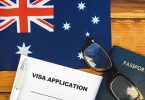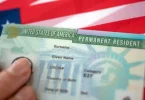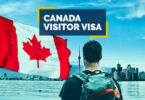In an increasingly interconnected world, the movement of people across borders has become a pivotal aspect of global dynamics. Whether for employment, education, or cultural exchange, individuals often seek opportunities beyond their home countries.
However, navigating the complex web of immigration laws and regulations can pose significant challenges, particularly when it comes to securing the necessary authorization to live and work abroad. For many, visa sponsorship emerges as a critical pathway towards realizing these aspirations.
Visa sponsorship entails an arrangement wherein a legal entity, typically an employer or educational institution, assumes responsibility for an individual’s immigration status in a foreign country.
This sponsorship is indispensable for individuals seeking to pursue employment, education, or residency in a country where they do not hold citizenship or permanent residency. By sponsoring an individual’s visa, the sponsoring entity commits to supporting the individual’s stay, ensuring compliance with immigration laws, and often providing financial or logistical assistance throughout the process.
The concept of visa sponsorship is integral to the fabric of global mobility, playing a pivotal role in facilitating talent acquisition, promoting cultural exchange, and fostering economic development. Employers, particularly in industries facing skill shortages or seeking specialized expertise, rely on visa sponsorship to access a diverse pool of talent from around the world. Similarly, educational institutions leverage sponsorship opportunities to attract international students, enriching their campuses with a wealth of perspectives and experiences.
Understanding the intricacies of visa sponsorship is essential for both individuals seeking opportunities abroad and organizations looking to recruit international talent or students. From navigating the various visa categories and eligibility requirements to complying with legal obligations and administrative procedures, visa sponsorship involves a multifaceted process that demands careful consideration and strategic planning.
In this comprehensive guide, we will delve into the nuances of visa sponsorship opportunities, exploring the different types of visas available, the responsibilities and benefits associated with sponsorship, and the key considerations for both sponsors and visa applicants. Whether you are an employer seeking to recruit global talent, a prospective international student aiming to study abroad, or an individual contemplating opportunities in a foreign country, this guide aims to equip you with the knowledge and insights necessary to navigate the complexities of visa sponsorship successfully.
Join us as we embark on a journey to unravel the intricacies of visa sponsorship, empowering individuals and organizations alike to seize the myriad opportunities that await across borders.
Types of US Visa Sponsorship
Employment-based Visa Sponsorship
Employment-based visa sponsorship is one of the most common routes for skilled workers to gain legal entry into the United States. It encompasses various visa categories, such as H-1B visas for specialty occupations, L-1 visas for intracompany transfers, and EB-5 visas for investors.
Family-based Visa Sponsorship
Family-based visa sponsorship allows U.S. citizens and lawful permanent residents to sponsor certain family members for immigration to the United States. This includes spouses, parents, children, and siblings, among others.
Diversity Visa Lottery
The Diversity Visa Lottery, also known as the Green Card Lottery, is a program that randomly selects individuals from countries with low rates of immigration to the United States. Winners of the lottery receive the opportunity to apply for permanent residency, also known as a green card.
Student Visa Sponsorship
Student visa sponsorship enables foreign nationals to pursue education in the United States. This includes F-1 visas for academic studies and M-1 visas for vocational programs.
Eligibility Requirement of $20,000 Visa Sponsorship Process
Employment Qualifications
Employment-based visa sponsorship typically requires individuals to possess specialized skills, qualifications, or professional experience that are in demand in the United States.
Family Relationship Requirements
Family-based visa sponsorship necessitates a qualifying familial relationship between the sponsor and the beneficiary, as defined by U.S. immigration laws.
Educational Background for Student Visa Sponsorship
Student visa sponsorship mandates acceptance into a recognized educational institution in the United States and proof of financial support to cover tuition and living expenses.
How to Find Visa Sponsorship Opportunities
Navigating the landscape of visa sponsorship opportunities requires strategic approaches:
Job Search Platforms and Websites
Utilize online platforms and job websites that cater to international applicants and offer visa sponsorship listings.
Networking and Referrals
Forge connections with professionals in your field and seek referrals from individuals already employed or studying in the United States.
Consultation with Immigration Attorneys
Seek guidance from experienced immigration attorneys who can provide insights into visa sponsorship options and legal requirements.
Documents Required for Visa Sponsorship
The documentation process for visa sponsorship varies depending on the type of visa and sponsor:
Employment Offer Letters
Employment-based visa applicants typically need offer letters detailing job responsibilities, salary, and other relevant terms.
Proof of Family Relationship
Family-based visa applicants must provide evidence of their relationship with the sponsoring relative, such as birth certificates or marriage licenses.
Admission Letters for Student Visas
Student visa applicants must furnish acceptance letters from accredited U.S. educational institutions and demonstrate financial capacity to support their studies.
Application Process for Visa Sponsorship
Submission of Application Forms
Applicants are required to complete and submit relevant application forms along with supporting documentation to the appropriate U.S. government agencies.
Interview Process
Some visa categories necessitate an interview with consular officials to assess the applicant’s eligibility and intentions for entering the United States.
Waiting Period and Processing Times
The processing times for visa sponsorship applications vary depending on the visa category, country of origin, and prevailing immigration policies.
Challenges and Considerations
Competition for Visa Sponsorship
The high demand for visas and limited quotas pose challenges for individuals seeking sponsorship opportunities.
Legal Complexities and Requirements
Navigating the intricate web of U.S. immigration laws and regulations requires careful attention to detail and compliance with legal requirements.
Financial Implications
Visa sponsorship often entails financial commitments from sponsors, including fees for application processing and support for the sponsored individual’s living expenses.
Benefits of Visa Sponsorship
Opportunity for Career Advancement
Employment-based visa sponsorship opens doors to lucrative job opportunities and career advancement prospects in the United States.
Family Reunification
Family-based visa sponsorship facilitates the reunification of families separated by geographical boundaries, enabling them to live together in the United States.
Access to Quality Education
Student visa sponsorship grants access to world-class educational institutions and diverse learning experiences in the United States.
Tips for a Successful Visa Sponsorship Application
Maintain Clear Communication with Sponsors
Establish open lines of communication with sponsors to address any concerns or queries throughout the application process.
Prepare Thoroughly for Interviews
Practice interview techniques and anticipate potential questions to present a compelling case for visa approval.
Follow Immigration Laws and Regulations Diligently
Adhere to immigration laws and regulations to ensure compliance and avoid jeopardizing visa sponsorship opportunities.
Common Myths and Misconceptions
Visa Sponsorship Guarantees Approval
Contrary to popular belief, visa sponsorship does not guarantee approval, as all applications are subject to scrutiny and approval by immigration authorities.
Visa Sponsorship is Only for Highly Skilled Individuals
While certain visa categories prioritize skilled workers, there are options available for individuals with varying levels of qualifications and experience.
Visa Sponsorship is a Shortcut to Citizenship
Obtaining a visa through sponsorship is not a shortcut to citizenship and typically requires separate processes and qualifications.
Impact of Visa Sponsorship on Employers
Hiring International Talent
Visa sponsorship enables employers to fill skill gaps and access a diverse talent pool, contributing to organizational growth and competitiveness.
Compliance with Immigration Laws
Employers sponsoring visas must adhere to immigration laws and regulations to ensure legal compliance and avoid penalties.
Economic Benefits
The influx of skilled workers through visa sponsorship stimulates economic growth, innovation, and job creation in various sectors.
Future Trends in Visa Sponsorship
Changes in Immigration Policies
Anticipate shifts in immigration policies and regulations that may impact visa sponsorship opportunities and processes.
Technological Advancements in Visa Processing
Advancements in technology are streamlining visa processing procedures, making them more efficient and accessible to applicants and sponsors.
Globalization and its Impact on Visa Sponsorship Opportunities
The interconnectedness of economies and the rise of remote work are reshaping visa sponsorship dynamics, offering new opportunities for international mobility and collaboration.
Legal and Ethical Considerations
Avoidance of Visa Fraud
Avoid engaging in fraudulent activities or misrepresentations during the visa sponsorship process, as it can lead to serious legal consequences.
Ethical Responsibilities of Sponsors
Sponsors have a duty to act ethically and responsibly in supporting visa applicants and complying with immigration laws and regulations.
Legal Consequences of Non-compliance
Failure to comply with visa sponsorship obligations can result in penalties, legal liabilities, and adverse effects on sponsors’ reputations.
Conclusion
Visa sponsorship offers a pathway for individuals to fulfill their aspirations of living, working, or studying in the United States. By understanding the various types of sponsorship opportunities, eligibility criteria, application processes, and associated challenges, individuals can navigate the complex immigration landscape with confidence and pursue their dreams responsibly.
FAQs (Frequently Asked Questions)
- Can anyone apply for visa sponsorship?
- Visa sponsorship eligibility varies depending on factors such as qualifications, familial relationships, and visa category requirements. It is essential to assess individual circumstances and consult with immigration professionals for personalized guidance.
- How long does the visa sponsorship process typically take?
- The processing times for visa sponsorship applications vary depending on factors such as visa category, country of origin, and prevailing immigration policies. Applicants should be prepared for potential delays and plan accordingly.
- What are the financial implications of visa sponsorship?
- Visa sponsorship often entails financial commitments from sponsors, including fees for application processing, legal representation, and support for the sponsored individual’s living expenses. Sponsors should consider these factors when undertaking sponsorship obligations.
- Are there any alternatives to visa sponsorship for immigrating to the United States?
- While visa sponsorship is a common pathway for immigration to the United States, there are alternative routes available, such as family reunification, refugee or asylum status, investment-based visas, and certain humanitarian programs. It is advisable to explore all available options and seek professional guidance to determine the most suitable approach.
- What happens if a visa sponsorship application is denied?
- In the event of a visa sponsorship application denial, applicants have the option to appeal the decision or explore alternative visa categories or sponsorship opportunities. It is crucial to understand the reasons for the denial and address any deficiencies or concerns in subsequent applications.





